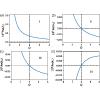当前位置:
X-MOL 学术
›
Phys. Rev. E
›
论文详情
Our official English website, www.x-mol.net, welcomes your
feedback! (Note: you will need to create a separate account there.)
Model for phonetic changes driven by social interactions
Physical Review E ( IF 2.2 ) Pub Date : 2020-02-19 , DOI: 10.1103/physreve.101.022312 A. Chacoma , N. Almeira , J. I. Perotti , O. V. Billoni
Physical Review E ( IF 2.2 ) Pub Date : 2020-02-19 , DOI: 10.1103/physreve.101.022312 A. Chacoma , N. Almeira , J. I. Perotti , O. V. Billoni

|
We propose a stochastic model to study phonetic changes as an evolutionary process driven by social interactions between two groups of individuals with different phonological systems. Particularly, we focus on the changes in the place of articulation, inspired by the drift observed in some words of Latin root in the Castilian language. In the model, each agent is characterized by a variable of three states, representing the place of articulation used during speech production. In this frame, we propose stochastic rules of interactions among agents which lead to phonetic imitation and consequently to changes in the articulation place. Based on this, we mathematically formalize the model as a problem of population dynamics, derive the equations of evolution in the mean-field approximation, and study the emergence of three nontrivial global states, which can be linked to the pattern of phonetic changes observed in the language of Castile and in other Romance languages.
中文翻译:

社交互动驱动的语音变化模型
我们提出了一种随机模型,将语音变化研究为由具有不同音系的两组个人之间的社会互动驱动的进化过程。特别是,我们专注于受漂移影响的关节位置的变化在卡斯蒂利亚语中某些拉丁语词根中观察到。在该模型中,每个代理的特征在于三个状态的变量,表示语音生成过程中使用的发音位置。在此框架中,我们提出了座席之间相互作用的随机规则,这些规则导致了语音模仿,从而改变了发音位置。在此基础上,我们在数学上将该模型正式化为人口动力学问题,推导了均值场近似的演化方程,并研究了三个非平凡的全局状态的出现,这些状态可以与所观察到的语音变化模式相关联。卡斯蒂利亚语言和其他罗曼语。
更新日期:2020-02-19
中文翻译:

社交互动驱动的语音变化模型
我们提出了一种随机模型,将语音变化研究为由具有不同音系的两组个人之间的社会互动驱动的进化过程。特别是,我们专注于受漂移影响的关节位置的变化在卡斯蒂利亚语中某些拉丁语词根中观察到。在该模型中,每个代理的特征在于三个状态的变量,表示语音生成过程中使用的发音位置。在此框架中,我们提出了座席之间相互作用的随机规则,这些规则导致了语音模仿,从而改变了发音位置。在此基础上,我们在数学上将该模型正式化为人口动力学问题,推导了均值场近似的演化方程,并研究了三个非平凡的全局状态的出现,这些状态可以与所观察到的语音变化模式相关联。卡斯蒂利亚语言和其他罗曼语。











































 京公网安备 11010802027423号
京公网安备 11010802027423号